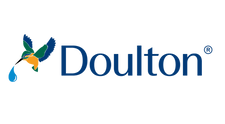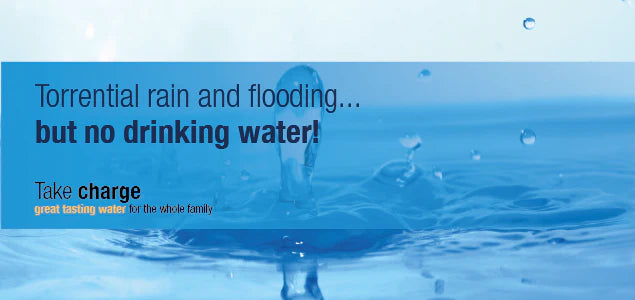The first week in October 2016 saw Hurricane Matthew sweep through the Caribbean, hitting the island of Haiti with wind-speeds of over 150 mph. With the number of casualties quickly reaching 1000, aid workers and rescue agencies struggled to get shelter, food and water to tens of thousands of people left homeless, thirsty and hungry.
The storm not only destroyed homes and crops, but severely damaged roads, power supplies, ports and the water supply infrastructure. The facilities for aid vessels to safely dock and for rescue personnel to get to devastated areas were greatly compromised. Attempts to provide extra resources on the ground were further threatened by the outbreak of cholera following the major disruption to the water supply.
Priorities
Fears grew that deaths due to the spread of disease could quickly outnumber those caused by the hurricane itself, and the supply of cleaner and healthier drinking water, together with shelter for all those displaced became a priority.
The storm had passed directly across Haiti's entire southern coast, driving the sea inland, flattening homes and contaminating any fresh water supplies not already destroyed.
The main road connecting the capital, Port-au-Prince, to the southern coast was destroyed and some small towns became inaccessible.
The US naval vessel USS Mesa Verde assisted with rescue efforts, as well as nine military helicopters that helped to deliver food and water to the hardest-hit areas.
The Red Cross launched an emergency appeal to provide medical aid, shelter and water for Haiti, one of the world's poorest countries, which had never fully recovered from the earthquake in 2010 that killed thousands of people and which was followed by a cholera epidemic.
Providing accessible, cleaner, healthier drinking water
With the threat of a following storm surge and further flooding imminent, and no chance of restoring a reliable water supply to thousands of people, water had be dropped in by helicopter or shipped in on vessels that were able to dock.
In such situations, contaminated water is real a threat, so gravity fed independent water supplies and water filters are proven to save lives. Those providing humanitarian aid need fast, portable and reliable methods of delivering water that's healthy to drink, not only for the homeless, but for the aid agencies and rescue workers arriving in the area too.
Crisis
Hurricane Matthew resulted in a colossal humanitarian crisis, which caused major food and water insecurities, zero sanitation and a cholera epidemic. Without filtered drinkable water, it was anticipated that many more people would suffer.
To reach minimum survival conditions, people who had lost everything needed to rely on the most basic of human needs and clean drinking water.
With power lines down and no reliable electricity supply, pumping water from a source that wasn't damaged by the storm was also impossible. Getting water to isolated areas in highly demanding conditions, anywhere in the world, is a major challenge.
Technology
Demanding situations and challenging conditions, whether in war zones, drought and famine effected regions, or as in the case of Haiti, areas suffering extreme weather events, need alternatives that are not only highly adaptive and portable, but quick to deliver results. This is where the technology to provide efficient, robust, independent drinking water filtration and supply can save lives.
Doulton Water Filters can help
To find out more about our Gravity Fed Water filters and wide range of products that can be used in difficult and demanding situations, call us now or email here.
Quality drinking water solutions for everyone and trusted by millions.






